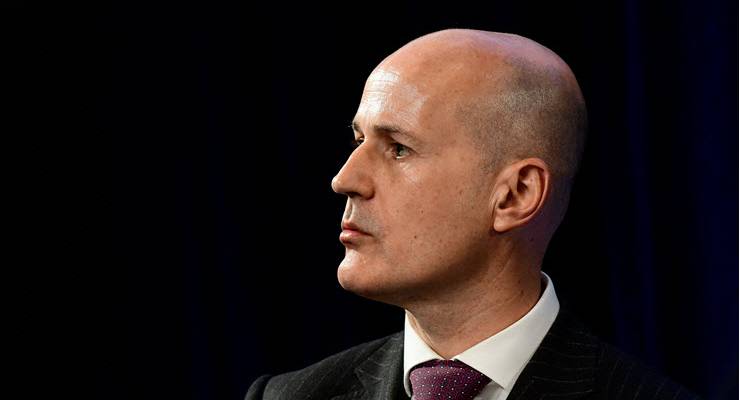
When it comes to company announcements, it doesn’t get more ambiguous than this.
On Tuesday insurance giant QBE said its chief executive officer was stepping down after an external investigation revealed he had breached the company’s code of conduct.
No details were given as to what the breach was, just that it involved “written communications”.
QBE said it had conducted an external investigation into a complaint. But no details were given about the complaint or the findings of the investigation, and remarkably, QBE would not even name the company that undertook the investigation. (The Australian Financial Review has now reported it was law firm Minter Ellison.)
We also now know, thanks to reporting, that the complaint came from a female employee.
QBE joins a long list of big companies using supposedly independent external investigators to assure investors and the public that it is taking matters like sexual harassment seriously.
An unregulated industry
Maurice Blackburn principal Josh Bornstein, who is representing Julia Szlakowski, the employee at the centre of the AMP sexual harassment scandal, said these investigations were not truly independent given they were commissioned by the company, and the board had the final say in whether they were made public.
“Anybody can say they are a workplace investigator — it’s a very unregulated industry,” Bornstein told Crikey.
“It’s very common for it to be a stage-managed and compromised process.”
The findings of AMP’s investigation into executive Boe Pahari has been at the heart of that sexual harassment claim. AMP hired London-based QC Andrew Burns to investigate Szlakowski’s allegations, and the barrister found — according to the company — harassment that amounted to low level breaches of the code of conduct.
AMP has used its investigation to maintain any misconduct was at a lower level and Pahari’s penalty — a docking of his bonus — was appropriate. But it has not released the full report and has refused to hand over communications with the London barrister, as well as the terms of reference provided to the AMP’s legal team. Pahari was ultimately promoted.
It’s not just lawyers who are brought in to investigate claims of sexual harassment or workplace misconduct. In the bitter stoush that blew up over the affair between Seven West CEO Tim Worner and his former personal assistant Amber Harrison, Seven hired Deloitte to investigate suspected misuse of a corporate credit card, which alleged Harrison was involved in a $262,000 fraud.
Harrison claimed the process was a “witch-hunt” designed by Seven, and that Seven and Deloitte were biased in their investigation.
“Seven did not investigate in any depth as they just thought they’d throw this enormous figure at me and bury me with it,” she said.
Seven defended the investigation at the time, saying it was not launched to force Harrison out of the company.
Whether more details will emerge about the QBE investigation will depend on whether shareholders demand it.
Even if the investigation itself was carried out at arms-length from the company, it’s the board that can ultimately decide whether or not to make details public.
While some shareholders say the quick departure of CEO Pat Regan shows “decisive” action in the wake of the drawn-out AMP saga, the lack of transparency is likely to provoke more questions.








These people would have been employed because they would be known to provide the answer desired by their employers. They are no different than consultants, who are very rarely independent unless they are very small firms. The four large accountancy/consultancy firms are never independent being dependent upon their paymasters, who in turn want them always to promote the benefits–are there any?–of neoliberalism.
One of the by-products of neoliberalism has been the growth of a huge and uncritical “opinion-offering” industry of consultants, journalists and lawyers for hire in royal commissions and other such inquiries. Those who would be truly critical–usually academics and some public intellectuals–are deliberately sidelined as the neoliberals always want confirmation bias which they can transmit to journalists who in turn will hand it to the general public. The latter will not normally take notice of it, but the neoliberals in the government and the top of corporations can always claim independent advice always confirms any decisions they may make.
If these people were digging ditches, at least they would be doing value-added and independent work.
My daughter, with an LLB and Masters in Data Analysis, works for one of the Commonwealth financial regulatory agencies but, in her early 30s last year, thought she might give the private sector a try. She got to the second interview with one of the Big Four and, long story short, the partner doing the interview told her at her age this would probably be her last shot at the private sector if she wanted to make the jump. He said after 10 years in the public sector, her ethics were already so engrained as to make her a risky proposition for the private sector. She was shocked, and decided her ethics were more important to her than the money.
The public sector also engages so called ‘independent’ investigators to force whistleblowers to resign. Investigation reports can neither be seen nor challenged by the whistleblower.
Unethical and unfair conduct is not confined to the private sector.